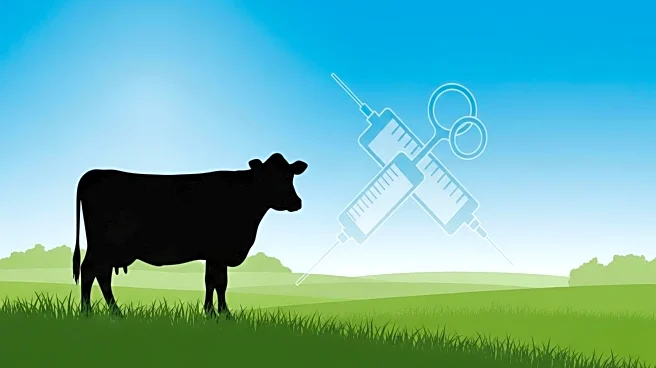What is the story about?
What's Happening?
At the 2025 World Dairy Expo, Boehringer Ingelheim veterinarian Jen Roberts discussed advancements in mastitis treatment for dairy cows. The focus is on using short-duration antibiotic treatments for Gram-positive cases, which are more likely to result in chronic high-cell-count cows if untreated. This approach reduces antibiotic use by about two-thirds, as Gram-negative cases often resolve without antibiotics. The strategy involves culturing mastitis cases to identify the type of bacteria present, allowing for targeted treatment and reducing unnecessary antibiotic use.
Why It's Important?
Reducing antibiotic use in dairy farming is crucial for public health and environmental sustainability. Overuse of antibiotics can lead to resistance, posing risks to both animal and human health. By adopting targeted treatment protocols, dairy farmers can ensure a safer food supply and build consumer confidence in the industry's commitment to responsible antibiotic use. Additionally, reducing antibiotic use can lower costs associated with milk discard, improving profitability for farmers.
What's Next?
Farms are encouraged to adopt protocols for consistent sample collection and culture analysis to guide treatment decisions. This may involve on-farm culture or sending samples to labs. The industry is moving towards more judicious antibiotic use, with an emphasis on short-duration therapies. Continued research and education on antimicrobial stewardship will shape future mastitis protocols, ensuring effective treatment while minimizing antibiotic reliance.
Beyond the Headlines
The shift towards targeted mastitis treatment highlights the broader trend of precision agriculture, where data-driven decisions improve efficiency and sustainability. This approach not only benefits animal health but also aligns with consumer demands for transparency and ethical farming practices.
















